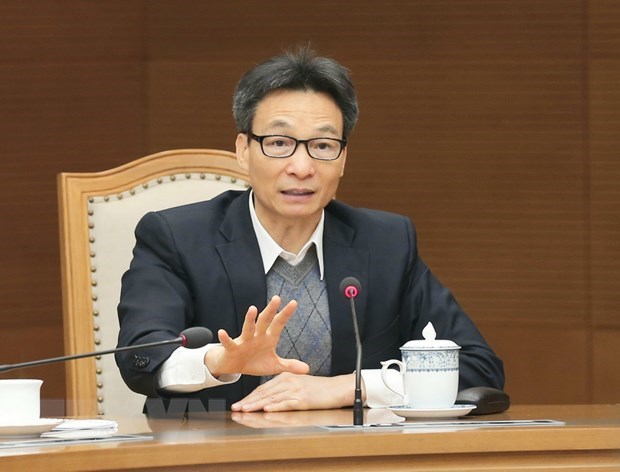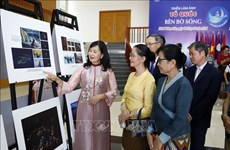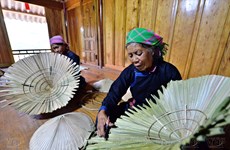Turning cultural heritage into strength for national development: Deputy PM Dam
 Deputy Prime Minister Vu Duc Dam (Photo: VNA)
Deputy Prime Minister Vu Duc Dam (Photo: VNA)Hanoi (VNA) - Deputy Prime Minister Vu Duc Dam has urged the National Council for Cultural Heritage to focus more on the preservation and promotion of relics to make them a source of strength for national development.
The Deputy PM made the call during a council meeting on January 5.
He expressed
his appreciation towards the contributions of council members over the last
several years, particularly in assessing applications for official recognition
of relics at different levels.
Dam directed
the Ministry of Culture, Sports and Tourism and the council to promote the
application of information technology, suggesting building a digital museum.
Speaking at the meeting, the council’s Chairman Professor Luu Tran Tieu said
Vietnam is now home to more than 40,000 relics, of which 112 have earned
special national recognition while 3,560 and 10,109 have achieved national and
provincial status, respectively.
Vietnam has so far had eight cultural and natural heritages and 13 intangible
cultural heritages recognised by UNESCO, he said, adding that a total of 179
museums have been founded in the country with nearly 4 million items on
display. It has also recognised 127 historic items and groups of items as
national treasures.
The council organised a number of plenary sessions between 2015 and 2020 to
verify nominations submitted to the Prime Minister on seeking UNESCO
recognition for a tug-of-war folk game, the Viet Beliefs in the Mother
Goddesses of Three Realms, Phu Tho’s Xoan singing, Bai Choi singing, and the
Practices of Then by the Tay, Nung, and Thai ethnic minority groups, among
others.
The professor said the council will continue to provide consultation and work
out key plans, strategies, and policies regarding the protection and promotion
of cultural heritage values during this tenure. It will also contribute ideas
to the building of legal documents in cultural heritages.
Tieu later proposed the Ministry of Culture, Sports and Tourism take
responsibility in developing a programme for the sustainable conservation and
promotion of cultural heritage values over the next 10 years, replacing the
target programme on cultural development for 2016-2020; and a decree for the
management of UNESCO-recognised intangible cultural heritage./.













